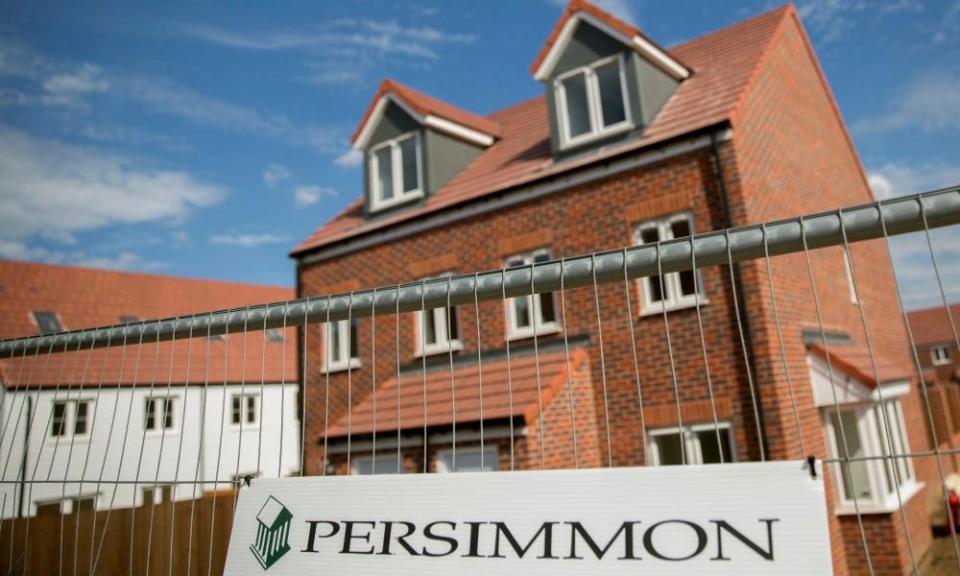Why am I under pressure to buy my new-build home despite legal snags?

I am about to complete on the purchase of a house on a new Charles Church development in Northiam, East Sussex.
My solicitor has identified an issue which negatively affects the value of seven of the properties. Because a certain form was never submitted to the Land Registry by the developer, each one has an “overage” on its deeds in favour of Charles Church.
This grants the company a proportion of any profit if the property is sold on and will have a huge impact on the resale value. The owners of properties already sold are none the wiser as no other conveyancer had picked up on it.
Charles Church’s solicitor has agreed that, with this overage in place, there is no way I could purchase the property. Nevertheless, Charles Church has given me two days to exchange and complete, or else it will remarket the property.
BC, Kent
You initially wrote to complain that Charles Church refused to allow your snagging surveyor access to the property. They changed their minds after the Observer questioned their intransigence. Only then did the overage issue come to light.
An “overage”, also known as a “clawback”, obliges a buyer to pay the seller a percentage of the profit if the value of the land increases after the sale. It usually applies to plots that might gain lucrative planning permission, not individual homes on a new estate.
According to the Land Registry, your case dates back to 1998 and would have been payable by the developer to the seller of the land when planning permission was granted. Charles Church, part of Persimmon Homes South East, should have applied to the Registry to have the clause revoked before they began building and admits unapologetically this was not done.
A day before you were due to exchange, the company told me that the Land Registry was “expediting” the issue and that you must complete within 24 hours.
With breath taking arrogance, it blamed your solicitors for not raising the issue until now. It can be no coincidence that Persimmon’s half-yearly accounts were due to be submitted on your completion day.
When I put this to Persimmon, it performed a swift U-turn and agreed that you will not be required to complete until the clause is removed.
This is an extraordinary case. The fact that Persimmon neglected such a crucial process at the outset, the fact that six other solicitors failed to spot a clause that would have made the contract untenable, and the fact that the developer was prepared to pressure you to signing it to boost its accounting figures, is lamentable. And not a word of contrition to me.
Persimmon’s refusal to allow access to your snagging surveyor is, it claims, because it performs its own inspections on its own handiwork. Such a ban is routine among big developers, according to Tim Fee, managing director of surveying firm Snagging Inspections.
“Health and safety is usually the excuse, but I think they don’t want buyers to come up with a long list of issues and delay the transaction,” he says.
Persimmon says surveyors are only allowed on the premises to carry out mortgage surveys and valuations, and full structural surveys are permitted provided health and safety and “operational” circumstances allow.
“Snagging issues are identified by Persimmon during the completion process and the purchaser has the opportunity to raise any issues at their home demonstration prior to completion,” it says. “The purchaser is then thoroughly protected by the 10-year NHBC warranty with its two-year defect liability period, which is further protected by the Consumer Code for Housebuilders.” This appears disingenuous.
Last year a YouGov poll for the charity Shelter discovered that over half of respondents who had bought new-build homes had suffered significant problems. Persimmon’s rating has fallen from four to three stars for the third year in a row in the Home Builder Federation’s customer satisfaction survey.
Moreover, getting problems fixed after completion can be a protracted battle. Phil Waller, a retired construction manager who runs website brand-newhomes.co.uk, suggested to a 2015 parliamentary inquiry into new-build quality that purchasers should have the right to carry out full surveys before completion.
“Such a provision would also discourage builders from serving notices to complete prematurely, or concealing major defects until after they have received the full purchase price,” he says.
His request, sadly, was in vain. If you have already exchanged, you are committed to completing the purchase regardless of snags unless they are severe structural defects.
If you subsequently identify problems, report them immediately and the developer has a legal responsibility to put them right.
If you need help email Anna Tims at your.problems@observer.co.uk or write to Your Problems, The Observer, Kings Place, 90 York Way, London N1 9GU. Include an address and phone number. Submission and publication of all letters is subject to our terms and conditions: see http://gu.com/letters-terms

 Yahoo Finance
Yahoo Finance 